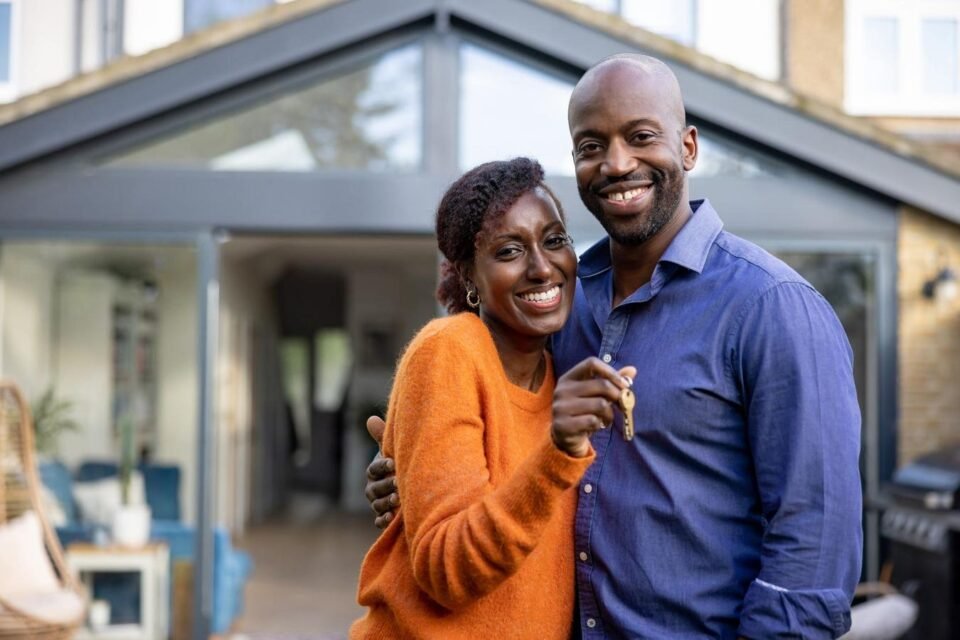Homeowners.
getty
Homeownership has long been a powerful tool for wealth creation in America, allowing families to build equity, secure financial stability, and pass down generational wealth. However, systemic discrimination has historically restricted Black families from accessing these opportunities, contributing to a persistent racial wealth gap. Addressing these disparities and reclaiming real estate as a pathway to wealth is essential for ensuring Black communities have an equitable stake in the American Dream.
The racial wealth gap is the result of deliberate policies that excluded Black families from homeownership for much of the 20th century. Redlining systematically denied Black neighborhoods access to federal mortgage insurance, making it nearly impossible for families to secure affordable home loans. While White families mostly built wealth through property ownership, Black communities were left behind. Even today, economic and racial segregation continue, with nearly 64% of historically high-risk areas being predominantly minority neighborhoods.
After World War II, the GI Bill provided low-interest mortgages to veterans, but Black veterans were often denied access due to local discrimination. The passing of the Fair Housing Act of 1968 was a landmark step in addressing housing discrimination, but systemic barriers still remain. Decades later, predatory lending disproportionately targeted Black homeowners with subprime loans, leading to devastating foreclosure rates during the 2008 housing crisis. These setbacks have made it harder for Black families to accumulate wealth through homeownership, deepening the racial economic divide.
Black borrowers face higher mortgage denial rates and interest rates than White borrowers with similar credit profiles. Appraisal bias undervalues Black-owned homes, limiting wealth-building potential, while gentrification and rising housing costs continue to displace long-standing Black communities. As of 2023, homeownership rates stood at 73.8% for White households, 63% for Asian Americans, 49.8% for Hispanic Americans, and just 45.9% for Black Americans. These numbers speak volume regarding the state of Black economic progress in America.
Despite these obstacles, homeownership remains a key pathway for Black families to build wealth and attain economic mobility. Tackling these disparities requires a comprehensive approach. Expanding down payment assistance programs and supporting homeowners with post-purchase costs can help Black families overcome financial hurdles to sustainable homeownership. Strengthening fair lending practices and enforcing anti-discrimination laws can promote equitable access to credit. Additionally, raising awareness about estate planning can help Black homeowners safeguard their assets, prevent involuntary sales, and pass down wealth to future generations.
For example, the Black-led Centre for Homeownership and Economic Development in Hillsborough, NC offers first-time homebuyers up to $50,000 in down payment assistance, along with access to housing counselors dedicated to strengthening homebuyer readiness. On the post-purchase side, organizations like the Neighborhood Housing Services in LA County, offer a range of tools to stabilize low-to-moderate-income homeowners, including grants ranging from $5,000 to $40,000 to repair and rehabilitate senior and historic homes, and to build Accessory Dwelling Units that can generate rental income.
Across the country, communities are taking action to reclaim real estate and empower Black families. Community Land Trusts (CLTs) create permanent affordability, preventing displacement while allowing families to build equity. Likewise, revitalization efforts are restoring Black neighborhoods without pushing out long-term residents. For example, The Housing Fund, a Black-led Community Development Financial Institution (CDFI) based in Tennessee, builds permanent, affordable housing for limited-income families in the Nashville area and serves as a permanent steward for community land that preserves long-term affordability through their CLT. Furthermore, initiatives like The African American Alliance of CDFI CEOs’ Housing Initiative Roadmap are actively dismantling systemic barriers to homeownership.
Reclaiming real estate is about more than closing the racial wealth gap, it’s about restoring agency, dignity, and opportunity to Black communities. By seeking out resources that provide tangible ways to build wealth through homeownership such as CLTs, down payment assistance, and policies that support fair lending and affordable housing, we can create a future where Black families can reclaim what was systemically denied.

